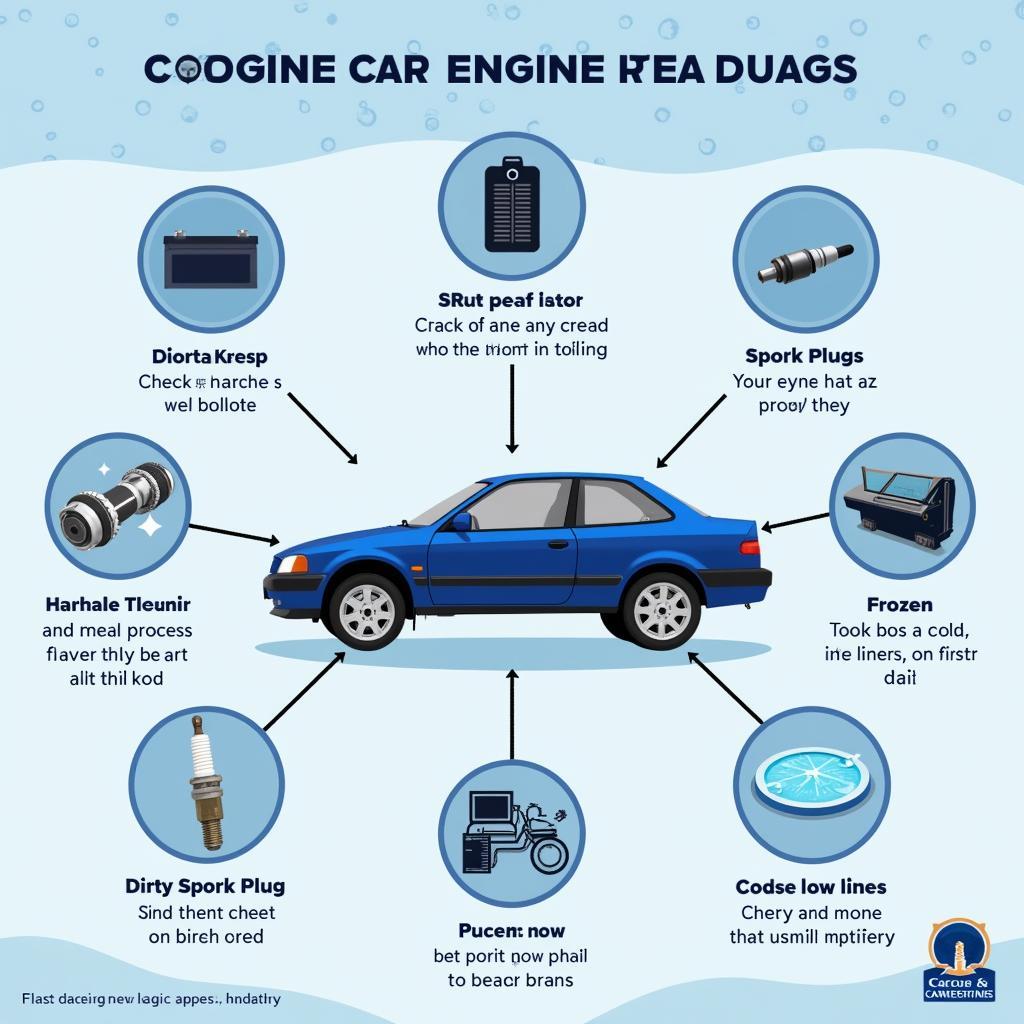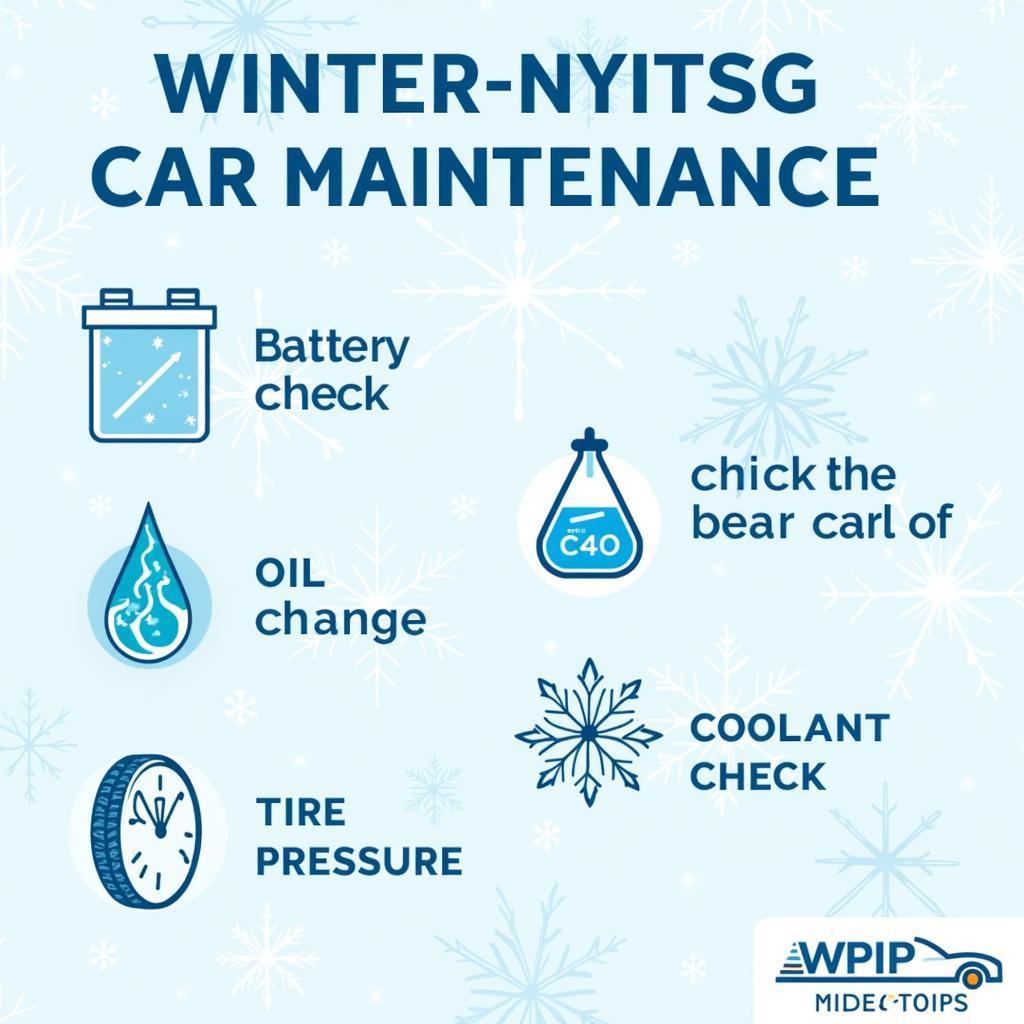Cold Car Engine Problems can be a real nuisance, especially during chilly mornings or after your car has been sitting idle for a while. Understanding these issues can help you avoid costly repairs and keep your car running smoothly. This article delves into the common causes of cold car engine problems and provides practical solutions to get you back on the road quickly.
Why is My Car Having Problems When the Engine is Cold?
Several factors contribute to cold car engine problems. When the engine is cold, the oil is thicker, making it harder for the engine components to move freely. The fuel can also be less volatile in cold temperatures, making it difficult to ignite. This often leads to starting issues, rough idling, and decreased performance until the engine warms up.
common car oil problems can further exacerbate these problems. Old or dirty oil can thicken even more in cold weather, leading to increased friction and potential damage to engine components.
Common Cold Car Engine Problems and Solutions
Here are some common cold car engine problems you might encounter and how to troubleshoot them:
- Hard Starting: This is often the first sign of a cold car engine problem. It can be caused by a weak battery, faulty spark plugs, or problems with the fuel system. Try jump-starting your car. If it starts, your battery might be the culprit. If not, check your spark plugs and fuel system.
- Rough Idling: A rough idle when the engine is cold can be due to several factors, including dirty fuel injectors or a faulty oxygen sensor. Cleaning your fuel injectors or replacing a faulty oxygen sensor can often resolve this issue.
- Stalling: If your car stalls frequently when the engine is cold, it could be a sign of a problem with the fuel pump, the idle air control valve, or a vacuum leak. Diagnosing the exact cause might require a professional mechanic.
- Decreased Performance: A cold engine might exhibit reduced performance until it warms up. However, if the performance issues persist even after the engine has reached operating temperature, further investigation is needed.
 Car Engine Cold Weather Issues
Car Engine Cold Weather Issues
Cold Weather Car Maintenance Tips
Proper maintenance can prevent many cold car engine problems. Here are some essential tips to follow:
- Check Your Battery: A weak battery is a common culprit for cold weather starting problems. Have your battery tested and replaced if necessary.
- Change Your Oil Regularly: Use the recommended oil viscosity for your car and climate. Using the correct oil is crucial, especially in most common car problems winter.
- Inspect Your Spark Plugs: Worn-out spark plugs can make it difficult for the engine to start in cold weather. Replace them as needed.
- Check Your Coolant: Ensure your coolant is properly mixed and topped off. This will help prevent freezing and damage to your engine.
- Use a Block Heater (if necessary): In extremely cold climates, a block heater can help warm your engine and make starting easier.
“A well-maintained car is less likely to experience cold weather problems,” says John Smith, a certified automotive technician with over 20 years of experience. “Regular maintenance can save you time, money, and frustration in the long run.”
 Winter Car Maintenance Checklist
Winter Car Maintenance Checklist
Troubleshooting Specific Cold Car Engine Problems
Diesel Car Starting Problem in Winter
Diesel engines can be particularly susceptible to cold weather issues. The fuel can gel in extremely low temperatures, causing starting problems. “Using a winterized diesel fuel or adding a fuel additive can help prevent gelling and ensure smooth starting,” advises Sarah Jones, a diesel engine specialist. You can find more information on this specific issue in our article on diesel car starting problem in winter. Also, consider exploring further information about general issues with problem with diesel cars.
My Car Will Not Start – What Could Be the Problem?
If your car won’t start, even after trying the troubleshooting tips above, the problem might be more complex. It could be related to the starter motor, the ignition system, or even a fuel pump issue. For a more detailed look at starting issues, you can read our article: my car will not start what could be the problem.
Conclusion
Cold car engine problems can range from minor inconveniences to significant mechanical issues. Understanding the common causes and implementing preventative maintenance can help keep your car running smoothly all year round. By addressing these issues proactively, you can avoid costly repairs and ensure a reliable driving experience. For personalized support or further assistance with your cold car engine problems, feel free to connect with us at AutoTipPro. Our contact information is: Phone: +1 (641) 206-8880, Office: 500 N St Mary’s St, San Antonio, TX 78205, United States.




Leave a Reply